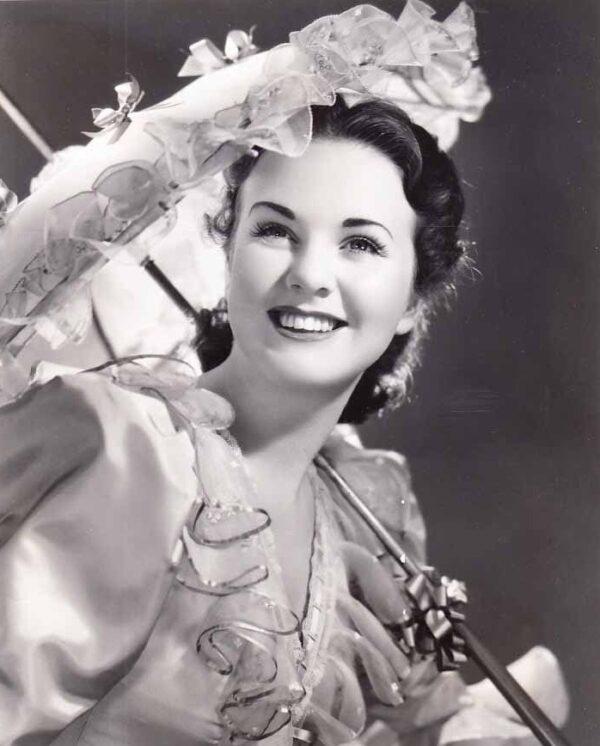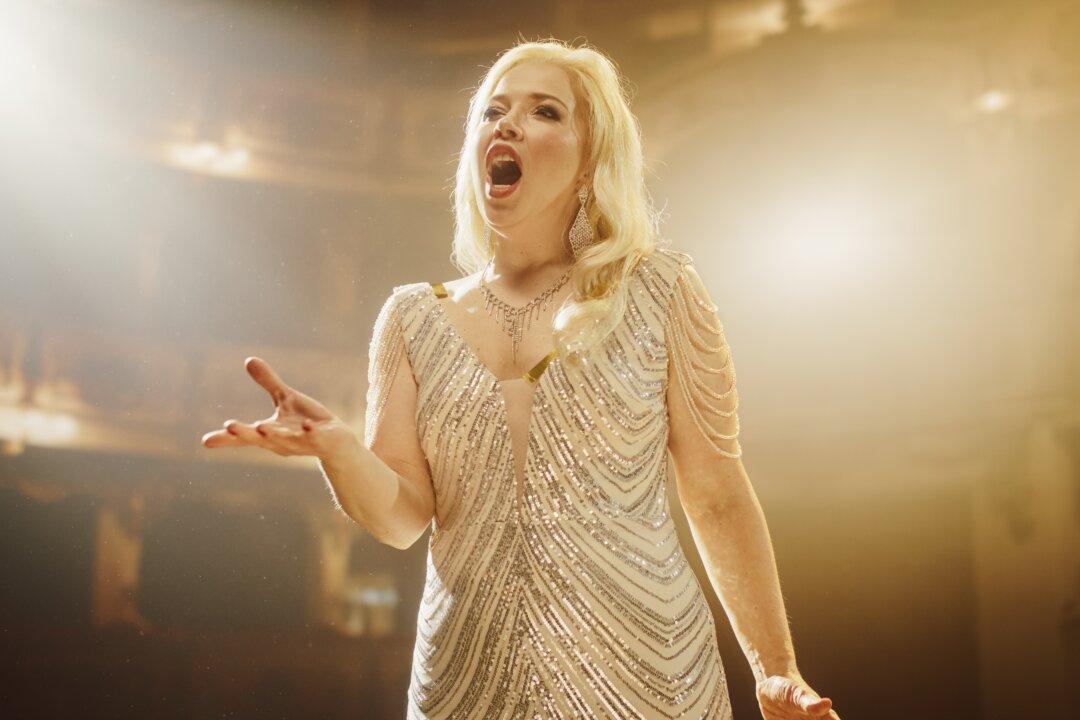Spring is the most romantic season of the year, so it inspires poems, songs, paintings, and even movies. One springtime movie is “Spring Parade” from 1940, a Joe Pasternak musical starring Deanna Durbin. Set in the Austro-Hungarian Empire in the 1890s, it’s full of music, laughter, romance, and Old-World charm.
A Hungarian Girl
Ilonka Tolnay (Durbin) is a simple peasant girl from a Hungarian village. One spring day, she goes to the fair to sell her goat. While there, she’s told by a fortune teller that her future lies in Vienna, where she will marry an artist and a powerful man will help her. She scoffs at the predictions but ends up falling asleep on a haystack on a cart. When she wakes up, she realizes that she has traveled far from home and the cart is owned by a baker, Latislav Teschek (S.Z. Sakall), who lives in Vienna.
Deanna Durbin plays a Hungarian peasant girl who can really sing, in "Spring Parade." Universal Pictures





